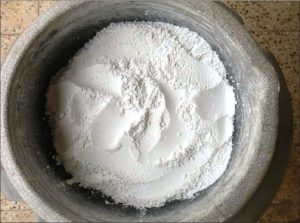A client recently asked Heather Baines, AD RAAP, founder of Roots of Wellness Ayurveda, about heavy metals, Ayurvedic medicines and reports of heavy metal toxicity.
Client: “I have been feeling really good! I am going to focus on [the diet recommendations you made] as much as possible. I think it has really helped. I’m practicing yoga and meditating more frequently. The abhyanga massage was very beneficial and I feel like I have a better understanding on the importance of this! One question I have relates to some of the information I found while reading about Ayurveda. I found a couple of articles saying that heavy metals have been found in some of the Ayurvedic products. How do I check for these things to make sure they are not in the products I use?”
Heather: You ask some great questions, and I plan to share my answer as a blog post to benefit other clients and patients who may have similar questions.
The issue of heavy metal toxicity and Ayurvedic herbal supplements dates back to an initial spike of reports of lead poisoning to the CDC, and a resulting study conducted by Harvard Medical School in 2004 and confirmed in a later study funded by schools and institutions throughout Massachusetts, both published in JAMA. These studies demonstrated that up to 20% of Ayurvedic medicines and compounds sold in Indian markets and online were contaminated with high levels of Lead, Mercury and Arsenic. There continue to be studies every few years resulting in similar evidence, but despite the best efforts of state and federal regulatory agencies, formulations by unscrupulous manufacturers in India and sold by unscrupulous grocers and online retailers to consumers in the US have not abated.
The issue is twofold:
- “Traditional” Ayurvedic preparations in the Ayurvedic Pharmacopeia included medicines produced by a method called Rasa Shastra which are prepared with, and are known to contain, heavy metals “purified” by soaking the metal in solution, heating it to high temperature, and pulverizing into an ash compound known as bhasma. The sale of and use of certain bhasma preparations is strongly discouraged by NAMA, the National Ayurvedic Medical Association, and the use of Rasa Shastra preparations has been excluded from the scopes of practice for Ayurvedic practitioners in the United States.

- Heavy metal toxicity and pesticide contamination continues to be an area of concernfor NAMA professional practitioners, as many Ayurvedic herbs are grown and processed in India. Even herbal preparations that don’t contain bhasma may still become contaminated with heavy metals and/or pesticide residue during growing, harvesting, and/or production (drying, grinding, powdering, etc) on faulty, old, and/or contaminated equipment.
For both of these reasons, I am highly selective in the products that I offer at Roots of Wellness Ayurveda and of the suppliers and sources of raw materials that go into the products that I formulate. For example, Ayush Herbs® produces the Guggul-Lip tablets that I recommended for you and that you have been taking. Ayush Herbs® offers the following quality control statement:
Ayush Herbs®, Inc. bases its formulations on traditional Ayurvedic combinations and contains herbs grown naturally in their pristine Himalayan habitat, without the use of pesticides, insecticides, herbicides, or chemical fertilizers. Our Ayurvedic products carry certifications in organic and kosher practices, as well as ISO practices and U.S. Food and Drug Association Good Manufacturing Practices (GMP). We maintain the highest quality control standards in the herbal supplement industry, as set forth at the birth of Ayush Herbs®, Inc. (https://www.ayush.com/about-us)
Additionally, all of the raw herb materials that go into the oils and ghees I make for use at Roots of Wellness Ayurveda are certified organic or wild harvested, and batch tested for heavy metal toxicity by my suppliers.
Please note that I do not recommend staying on any one formulation for a period longer than 3 months, and generally recommend that clients stop supplementation for a period of 2-4 weeks after the doshas have returned to normal and symptoms have abated or stabilized. This gives the digestion a rest and time for the body to reset, and gives you a great deal of information about the effectiveness of your diet modifications and lifestyle practices to support your health. Additionally, adjustments in Ayurvedic protocols are always made seasonally to account for the effect of the weather and climate on the doshas.
Finally, I do not recommend that you order Ayurvedic supplements online or that you self-medicate with Ayurvedic herbs — to avoid the very concerns about heavy metal toxicity that you raise.
Client: This is very helpful! Thank you.
Heather: My pleasure. I look forward to seeing you soon.
